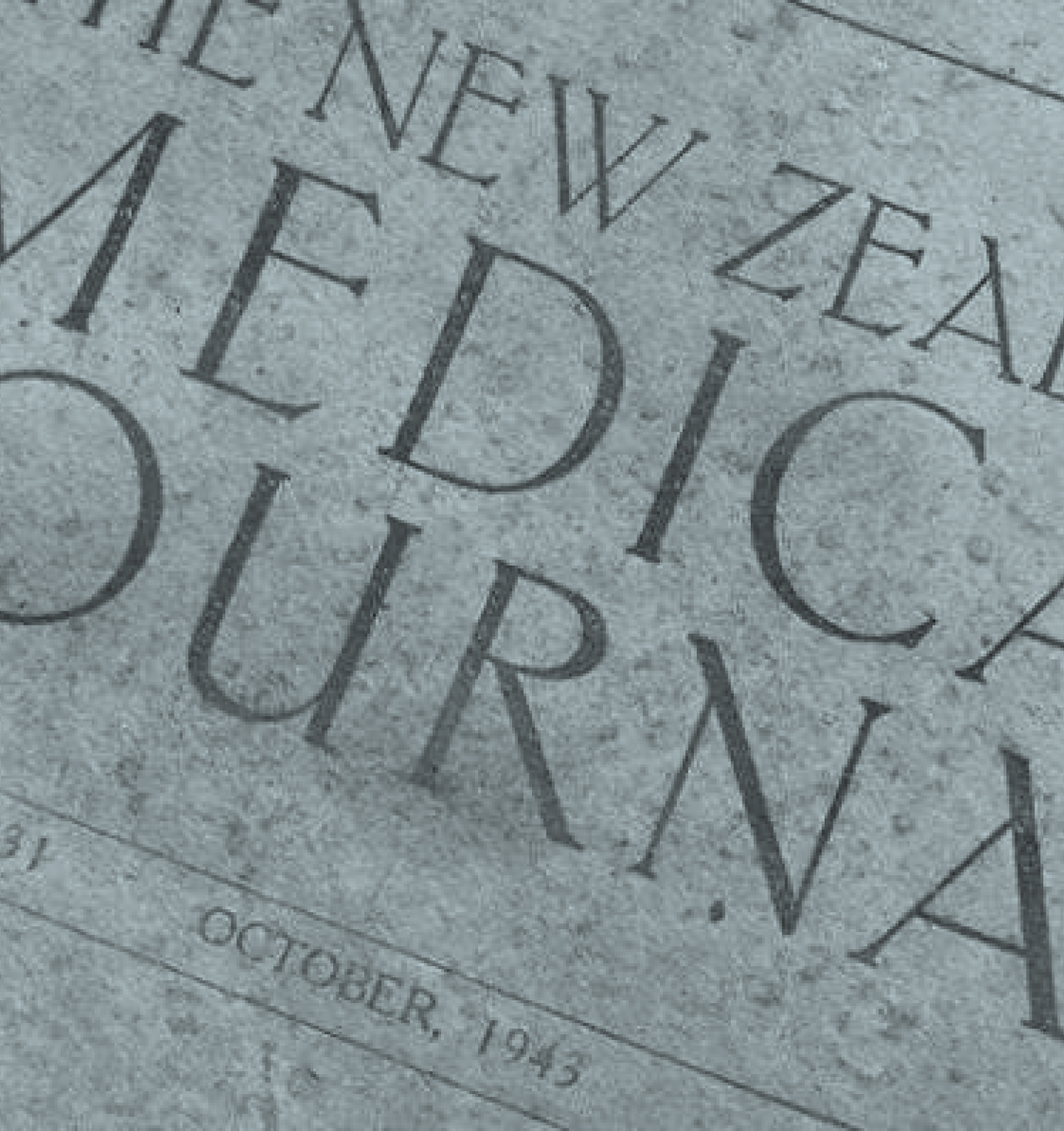100 YEARS AGO IN THE NZMJ
Vol. 137 No. 1596 |
False or Careless Medical Certificates.
Full article available to subscribers
A meeting of the medical board of New Zealand was held in the rooms of the Auckland Hospital Board, Kitchener Street, Auckland, at 2pm., on Monday, 3rd March, 1924.
PRESENT.—Sir Henry Lindo Ferguson (Chairman), Drs. W. H. Parkes, J. P. D. Leahy, W. Newlands, W. Irving, J. P. Frengley, and J. S. Elliott.
While the Board was dealing with applications for registration. Etc., Sir Donald McGavin, Director-General of Medical Services, waited upon the Board by appointment, to seek its assistance in dealing with several cases where registered medical practitioners had given untrue and misleading medical certificates to pensioners whose cases had to be dealt with by his Department. Sir Donald explained that there was power in the War Pensions Act to prosecute medical practitioners in such cases, but that before recommending such action, he would be glad if the Board could see its way to take the matter up with a view to stopping what was going on. Sir Donald then cited a number of typical cases which were, he said, only a few out of many.
Case No. 1.—This man returned to New Zealand on 26th May, 1919, and was discharged from the New Zealand Expeditionary Force, on 22nd June, 1919. On medical examination immediately prior to his discharge he was found medically fit. In November, 1923, i.e., about 4½ years after his discharge, application was made for the granting of war pension and treatment of this man on account of pulmonary tuberculosis. Two medical certificates were forwarded, one dated 19th November, 1923, setting out the man’s then condition, and a second which reads as follows:—“This is to certify that in February, 1919, I examined ————— and found him suffering from tuberculosis of the lungs. His sputum was also examined and tubercle bacilli were found present.” It will be noted that the medical officer who gave the latter certificate stated that he had found him suffering from pulmonary tuberculosis in February, 1919, although the man had not arrived in New Zealand until the end of May, 1919. I may state that the medical man was not out of New Zealand at this time, so that no excuse could exist on these grounds. It is clear that had this certificate been accepted, as it certainly would have been but for this inconsistency in dates, a pension and treatment would have been granted without hesitation.
I interviewed the medical man who gave this certificate and he informed me that he had been written to by the applicant for a certificate, and that he had given the certificate on the applicant’s statements, although he had no recollection of ever having seen the man. He was profuse in his apologies for the misrepresentation by the applicant for pension, but appeared quite unable to appreciate the difference between certifying to a fact within his own knowledge and to a statement made by an individual.
Case No. 2.—This man had been in receipt of war pension on account of neurasthenia. From several irrefutable sources of evidence, the Department learned that this man indulged excessively in alcohol, and his pension was therefore cancelled.
A medical man wrote to the Commissioner of Pensions as follows:—“I have never seen ————— the worse for drink, nor have I ever any reason to suppose he indulges in it. He tells me that he has never tasted liquor while in ————— hospital, and I have found this man always truthful . . . . I feel that this man is being unjustly treated.”
In January, 1922, he had forwarded the following statement to this office:—“The man ————— has been an inmate of the ————— Hospital since 20th November, 1921, when he was admitted in a state of acute alcoholism. He is certainly now quite unfit for work. During his period in hospital he had several attacks of severe muscular pain that appeared to be rheumatism, and on one occasion he appeared to have a malarial attack. He had undoubtedly been drinking too freely before his admission.
It is unnecessary to comment further on this case.
Case No. 3.—Medical Examiners are asked to complete their reports on forms sent out from this office, on the head of which is written the disability for which the individual is granted his pension. A form was sent to a medical man for this pensioner, on the top of which it appeared that he was granted a pension for “malaria.” The report rendered was as follows:—Q.—1. Describe his general state of health and physical condition: A.—Fair. Q. 2 What is the nature of his present disability? A.—Not able to do hard work. Has attacks of malaria still.
Incidentally it may be pointed out that such a report is no value to this Department as it contains no information beyond a reiteration of the pensioner’s statements. The point, however, to which I wish to draw attention is that by a clerical error “malaria” had been written on the top of the form instead of “myalgia.” The pensioner had never claimed pension on account of malaria, or alleged himself to be suffering from that disability, nor had he apparently ever been in a country in which malaria might have been contracted.
The Board decided to ask the Editor of the NEW ZEALAND MEDICAL JOURNAL to publish a reasonably full statement of the minutes of this meeting together with the details supplied by Sir Donald McGavin, and also to be good enough to publish a warning that in future if any such case is brought under the notice of the Board, the Board will immediately take action with a view to having the name of the medical practitioner concerned struck off the Register.
See more related
